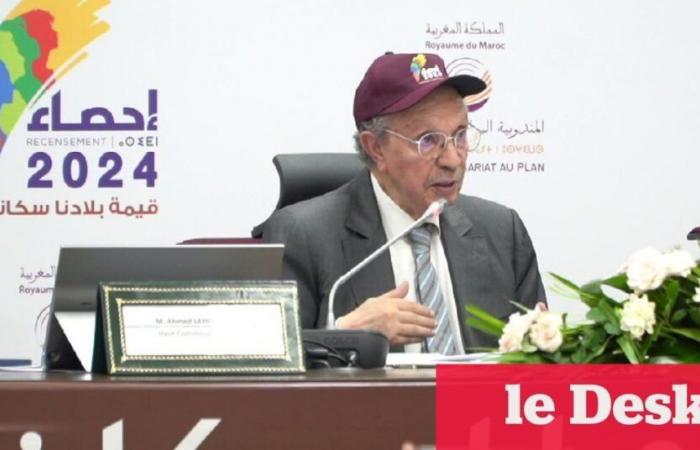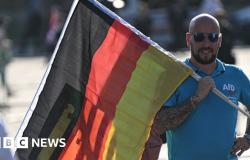The general census of the population and housing has begun. Before the effective launch of the operation on September 1, the High Commissioner for Planning Ahmed Lahlimi Alami took the opportunity to make a final point. Round-Up
Starting this August 30, 55,000 investigators will roam the streets of Morocco to carry out for two days the last stage of their preparation for the general census of the population and housing (RGPH) 2024, which will be effectively launched on Sunday, August 1is September: know ” at heart ” the areas assigned to them out of the 38,000 census districts divided up, the paths to take, the inhabitants of the region and its various facilities and buildings.
Two years of preparation preceded this step, ” of extreme importance ” for the country, according to the High Commissioner for Planning, Ahmed Lahlimi Alami, and during which significant financial, human and logistical resources were mobilized. During a press conference held on August 29, Lahlimi Alami made a point of making a final point to answer the various questions raised around the RGPH 2024, but above all to put an end to the controversies surrounding it.
A budget of nearly 1.5 billion dirhams managed in “ all transparency »
The RGPH is a process which “ falls under the sovereignty of Morocco itself (…) and which meets the kingdom’s commitments to international bodies “. These are the terms in which Lahlimi describes this national operation, which highlights its importance. In this spirit, no means have been spared to succeed in the census which is taking place this year under the banner of digitalization and ” optimism ».
Thus, an envelope of 1.46 billion dirhams (MMDH) was mobilized over four years, from 2022 to 2025, to finance the different aspects of the census, according to the High Commission for Planning (HCP). Human resources take up the lion’s share of this budget, or 67% with employee allowances amounting to 970 million dirhams (MDH). The second largest share of this amount was allocated to digital solutions, equipment and tools, amounting to 200 MDH. The remaining 20% of the budget, or 280 MDH, covered the various other expenses, including the cost of cartographic work, one year before the RGPH, allowing for the first time to obtain a detailed vision of the country’s built landscape.
An official response to the budget issue, widely raised in the weeks preceding the start of the RGPH 2024, has finally been given and published on the HCP website during the conference itself. However, it is ” opacity “, surrounding, according to some, its management which seems more annoying. Questioned by The DeskLahlimi reassures: “ There is absolutely no opacity. All the guarantees of transparency are there, with close control and coordination with the General Treasury and all the competent institutions. ».
Regarding certain services ordered, including in particular the supply of tablets and rental cars, contracted outside the public procurement portal, the head of the HCP explains that this is due to the nature of ” urgent ” of the operation. ” This is an operation that has not been put out to tender simply because we do not have the time to go through all these procedures and administrations. “The HCP has therefore opted for a negotiated procedure, indicates the High Commissioner, stressing that ” This is normal practice. After the green light from the Head of Government. A consultation was launched, then we went through a negotiation to make this equipment available to the census takers.
RNP, RSU, direct social aid … « no relation »
The second issue raised with the approach of the RGPH 2024, which coincides with the expansion of the national population register (RNP) and the unified social register (RSU) and then the establishment of direct social assistance, is the link between these different initiatives. The main fear is that the responses given during the census could influence the social indicator on which the targeting of state subsidies is based. On this point again, Lahlimi reassures: ” There is no relationship between the census and the RSU ».
The objective of the census, he recalls, is the determination of the legal population at the national level, its demographic and socio-economic characteristics, the housing conditions of households and the establishment of the master sample necessary for carrying out intercensal household surveys. The purpose of the various questions on the form is not to establish the degree of wealth or poverty of people. That is of little concern to us. Our objective is to obtain data that will be useful to us for future studies and to establish the indicators that are essential to us. “, Lahlimi insists.
To further reassure the population, the official added: ” The data is encrypted and sent directly to the processing center. We use this data to define the overall structure of the population and not the profile of the individual or household (…) they are not shared with any other party ».
« Not an ethnic census »
A third controversy that Lahlimi wanted to put an end to is that which began after calls by certain Amazigh activists to ” answer the investigators’ questions only in the Amazigh language ” for Moroccans speaking the second national language. The objective behind these calls, according to their authors, is to ensure ” better representation ” of this population. However, according to the official, ” speaking Arabic or Amazigh does not change anything, just as asking the language spoken is useless. This is a general population census and not an ethnic census ».
The controversy that has been raging for some time on social networks is therefore unnecessary, as the head of the HCP claims, especially since the language criterion was taken into account during the selection and training of investigators. The enumerators were assigned to areas where they live, where they know the population and where they speak their language. “, Lahlimi further emphasizes.
In the same vein, the High Commissioner highlighted the cultural plurality of Morocco, where different civilizations have coexisted throughout history, making diversity a strength of the country. It is impossible to determine with certainty who are the Amazigh, the Arabs or others. There are Amazigh families who speak only Arabic, just as there are Arab families who speak Amazigh. ” he said as an example.
Asked in the same vein on the point of religion and faith, Lahlimi responds in the same way: “ People’s beliefs are their own business. It’s strictly personal. It has nothing to do with the goals of the RGPH. ».
A census ” future speaker »
For Lahlimi, the RGPH 2024 constitutes an important stage in the history of the country, allowing to put into perspective the progress made in certain areas and to situate in the future the public policies, as well as the priorities of the nation. It is a census that enunciates the future. ” he thunders.
With this in mind, in addition to the classic questions asked during previous censuses, the 2024 RGPH will see several methodological improvements. This mainly involves conducting an exhaustive count of households and individuals and using sampling to estimate certain characteristics of the population, making it possible to improve the quality of census data and reduce the cost of conducting it, using two questionnaires: a short questionnaire addressed to all households and a long questionnaire administered to all households for municipalities with fewer than 2,000 households and to a fraction of 20% of households (one household in 5) in municipalities with 2,000 households and more.
This sample is determined randomly at the level of the data collection application. The long questionnaire includes all the themes covered in the short questionnaire. In addition to exploring existing questions in more depth, it also allows for the introduction of new themes, including medical coverage, the environment, and the use of ICT. Questions on the lighting method, the source of water supply, and the method of disposing of household waste and the use of renewable energy for domestic use are thus added. Other questions will focus on access to care, health insurance, and social protection.
On the technological level, new features are also being introduced. This census will see the integration of all census collection operations through a computer system with three main components, namely a mobile geographic information system, a mobile computer application for collecting statistical data (CAPI) and a web platform for monitoring and managing the work.
©️ Copyright Pulse Media. All rights reserved.
Reproduction and distribution prohibited (photocopies, intranet, web, messaging, newsletters, monitoring tools) without written permission.






